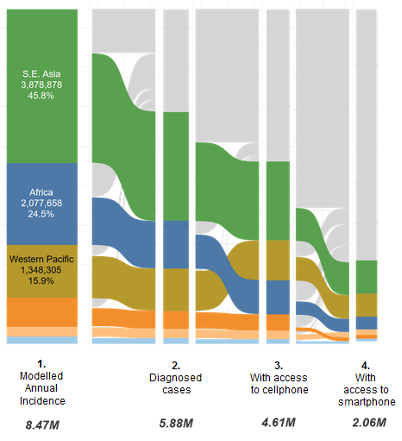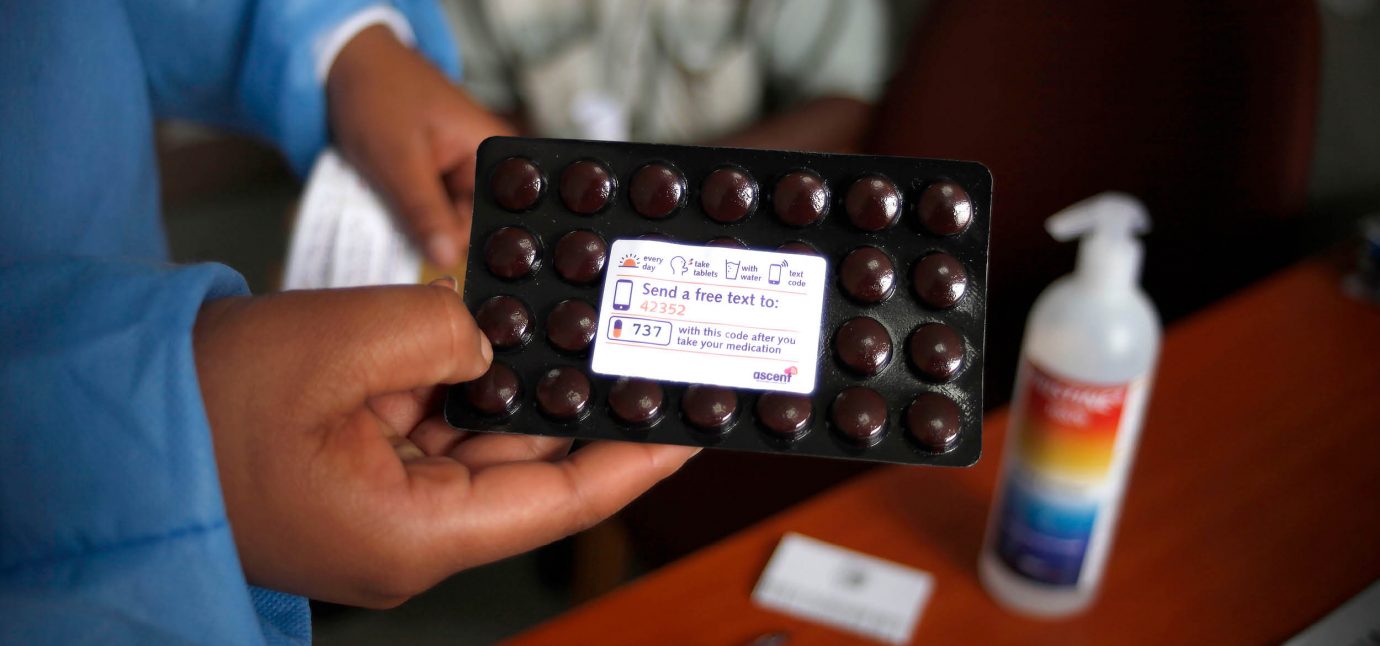As part of the ASCENT project, funded by Unitaid, PATH and KNCV Tuberculosis Foundation (KNCV) release a suite of resources to expand the market for digital adherence technologies (DATs). Often, persons with tuberculosis (TB) have difficulty completing their treatment successfully. DATs support them to take medication as prescribed, without imposing significant social or financial costs.
While the market for DATs is well-established in many high-income countries, relatively little is known about the size and composition of the market for these products, or even which products might be best suited to the diseases and demographics, found in low- and middle-income (LMIC) geographies. Even though these technologies respond to a critical problem: a lack of adherence to long medication regimens, such as those for TB, which can lead to sub-optimal patient outcomes and even population-wide resistance to the most effective drugs.
For that reason, KNCV and PATH have collaborated on a suite of resources, designed to answer some of the most pressing questions about DATs and their applicability in under-resourced settings.
Product landscape
The 2021 Market Landscape for digital adherence technologies takes a wide view of the DAT market to develop a clear picture of the DATs currently in use across geographies and disease areas by evaluating the current ability of the overall DAT market to serve TB. The landscape identifies market trends and promising technology areas for the overall TB market, recognizing that particular products will be better suited to certain contexts than to others.

As part of the Market landscape, the ASCENT project also produced profiles for each DAT product evaluated. These include overviews of the product, how they score according to technical specifications and fit-for-purpose metrics, and how to access the products.
Market size for DATs
A range of stakeholders in the DAT ecosystem, including would-be manufacturers, lack quantifiable metrics about the size of the opportunity that the DAT for TB market represents. A Market sizing analysis helps to bridge this gap by segmenting the total market for DATs via factors including care-seeking behavior, access to cellular technologies, and network coverage and costs. These considerations are critical for the future of DATs in LMICs, ensuring that persons affected by TB are reached via appropriate channels and technologies.

Key insights
- A surprising number of DATs designed for high income markets are technologically compatible and affordable for lower-income contexts, since they were designed to be low-tech to support elderly populations who have trouble managing their medications.
- Cell-phone ownership and network access is a major barrier to DAT adoption. In rural sub-Saharan Africa, just over 50% of populations have access to 2G network coverage, severely limiting the market for any DAT product requiring a phone.
- DATs have not been meaningfully introduced to the private sector, despite a significant share of persons with TB seeking care via private providers. Over 40% of persons with TB in India, Indonesia, and the Philippines are diagnosed and treated by private providers.
About the ASCENT project
The ASCENT project aims to help persons affected by TB successfully complete their TB treatment with the help of digital adherence technology. ASCENT strives to reduce the suffering, mortality and financial consequences caused by TB.
The Unitaid funded and supported ASCENT project is led by KNCV Tuberculosis Foundation in partnership with The Aurum Institute, London School of Hygiene and Tropical Medicine, and PATH.

